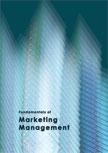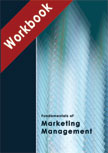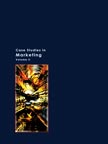Innovative Marketing Strategies of Lush Fresh Handmade Cosmetics
|
|
ICMR HOME | Case Studies Collection
Case Details:
Case Code : MKTG160
Case Length : 21 Pages
Period : 2002-2006
Pub Date : 2007
Teaching Note :Not Available
Organization : Lush Fresh Handmade Cosmetics
Industry : Beauty care / Cosmetics
Countries : UK, Europe, USA
To download Innovative Marketing Strategies of Lush Fresh Handmade Cosmetics case study
(Case Code: MKTG160) click on the button below, and select the case from the list of available cases:


Price:
For delivery in electronic format: Rs. 400;
For delivery through courier (within India): Rs. 400 + Shipping & Handling Charges extra
» Marketing Case Studies
» Marketing Management Short Case Studies
» Case Studies Collection
» ICMR HOME
» Marketing Management Short Case Studies
» View Detailed Pricing Info
» How To Order This Case
» Business Case Studies
» Area Specific Case Studies
» Industry Wise Case Studies
» Company Wise Case Studies
Please note:
This case study was compiled from published sources, and is intended to be used as a basis for class discussion. It is not intended to illustrate either effective or ineffective handling of a management situation. Nor is it a primary information source.
Chat with us

Please leave your feedback

|
|




<< Previous
Excerpts Contd...
Ethical Roots, but not 'Preachy'
|
Lush prided itself on its ethical stance. Constantine was responsible for the
original 'Against Animal Testing' campaign in 1985, which Body Shop had been
espousing ever since. Lush did not test its cosmetics on animals and did not buy
raw materials from suppliers who did not share the same policy. Lush had even
convinced a couple of suppliers to move to a non-animal testing policy. Lush
tested its products on human testers instead. It did not use plastics and its
policy of minimal packaging prevented hundreds of thousands of bottles from
ending up in landfills. Even its passion for natural products (most of them
devoid of preservatives) was doing its bit in preventing damage to the
environment...
|

|
Managing Growth and Geographical Expansion
Lush managed to cultivate a global following for its brand. Constantine felt
that it was consumer demand rather than Lush's ambition that was at the root
of Lush's rapid growth. The expansion was slow and deliberate, but prompted
by various people from different countries who wanted to set up Lush stores
in their own countries. For instance, expansion into Croatia was prompted by
the 1996 visit of Milenko Markowic, a Croatian clothing entrepreneur, who
approached Lush. As of late 2006, Lush had five stores in Croatia...
Competitors Beware!
Analysts felt that in a very short time, Lush had outdone many of its well
established competitors. Its growth rate was faster than that of the Body
Shop during the same stage of development. It was reported that Alliance
Boots Plc was forced to launch its own 'fresh' range in 2000 on account of
Lush. Its success also prompted Estée Lauder to call up Constantine in early
2000s to enquire if he was interested in being acquired. A similar move from
LVMH was also resisted...
|
|
Truly Iconoclastic
Lush had grown to enjoy a cult brand status. According to Ritson, every
aspect of Lush's operation exuded brilliance and the brand was moving
toward an "iconic power brand" status. Lush had developed a loyal and
evangelical customer base. It was not uncommon for its customers to pool
their resources to purchase Lush products in bulk and arrange a
get-together when the products were delivered. Lush was very close to
its customers and listened to them seriously. In fact, the name of the
company was also given by a customer from Edinburgh, UK - Elizabeth
Bennett... |
The Other View
Some experts felt that Lush's success notwithstanding, it should opt for more
traditional advertising. They felt that Lush's reliance on in-store advertising
could be counter productive as the competition in the segment was intensifying.
Matt Connolly, director of Enable, said that Lush's customer was a 'SEGOR'
(someone with 'sustainable, ethical, green, organic or responsible'
attributes)...
Future Outlook
Constantine's vision was to have 1,000 Lush stores around the world by 2008. He
admitted that the biggest challenge in expanding the number of stores was not
financial resources, but availability of stores in the right location and at the
right price. He said, "We'd like around a thousand stores, but we are very picky
about sites." He also wanted to strike the right "balance between perfect
ingredients and reasonable prices."...
Exhibits
Exhibit I: The Logo of Lush
Exhibit II: Countries where Lush Stores are Located
Exhibit III: Some Products of Lush: Fit to Eat?
Exhibit IV: A Lush Life - Lush's Brand Proclamation
Exhibit V: Lush's Celebrity Fan Following
Exhibit VI: Views from Lush Stores: Welcome to the "Beauty Deli"
Exhibit VII: Screenshots of Lush's Websites
|
|










